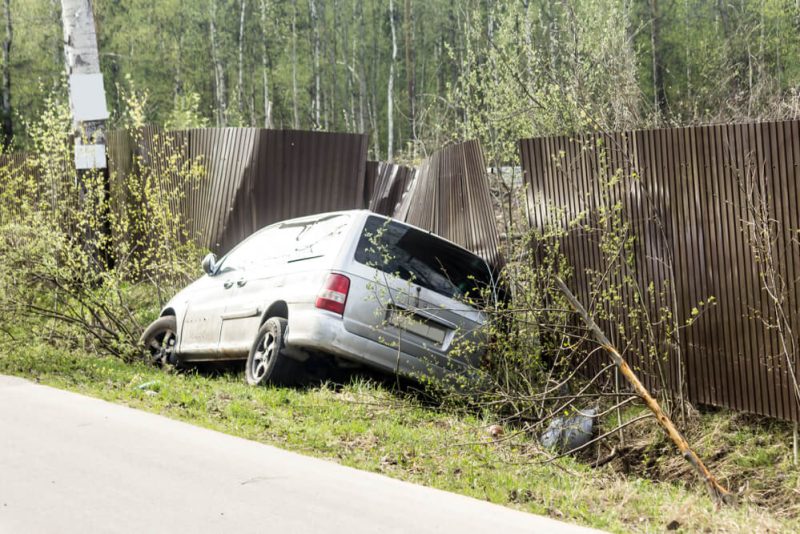Blog
“My Friend Was Driving!” — The Truth About Permissive Use in Washington Auto Policies

So, your buddy needed to “borrow your car real quick,” and you said, “Sure, just don’t crash it.” Next thing you know, they’ve turned your Honda into a hood ornament on someone’s fence. Now you’re panicking and asking, “Does my insurance cover my friend driving my car?” Let’s walk through what actually happens with your car insurance when you let someone else behind the wheel.
Understanding Permissive Use: When Your Friend Borrows Your Car
Here’s the deal. If you say, “Yeah, you can drive my car,” your friend becomes what insurance companies call a permissive driver. What is a “permissive driver”? Basically, they had your permission, and not just a vague, “Well, I left the keys on the table,” but a real “Yes.”
In Washington State, most car policies include coverage for permissive use. That means if your friend crashes your car after taking it with your permission, your plan might help pay for the damage. Key word: might. There are rules. There are exceptions. And there’s probably a deductible. But the idea that you can’t let someone else drive your car? That’s one of those insurance myths your Uncle Joe told you.
It’s a different story if your friend took the car without asking. That’s a non-permissive driver, and your insurer may not be so understanding. Car insurance permissive use is nothing to joke about, so you had better make sure you know who has your keys.
Does My Insurance Cover Other Drivers?
Here’s a surprise: Car insurance usually follows the car, not the person. So if you let someone borrow your ride, your policy is the one that gets involved first, and not theirs. That’s the basic idea behind permissive use — yes, you can let your buddy drive your vehicle, but you’re ultimately the one on the hook if things go south.
That means your liability insurance will usually cover any damage your friend causes to other people’s stuff (like the mailbox shaped like a goose). If you have collision coverage, your policy may help fix your car too. But that usually comes with a deductible and possibly some awkward conversations afterward, especially if you’ve added your significant other to your policy.
“Does MY insurance cover ME driving a friend’s car?” is another question people often ask. If you borrow someone else’s car, it depends on their plan. If their policy allows it … and you have their permission … you may be covered under their plan. If not, your own insurance might have to step in. Or it might not. So maybe don’t borrow your friend’s car to do donuts in a gravel parking lot unless you’ve cleared it with the insurance deities.

Exceptions to the Rule: When Permissive Use Doesn’t Apply
Permissive use doesn’t mean “anyone with a pulse and a driver’s license can take your car.” If your friend is excluded from your policy, meaning your insurance company said, “this person, absolutely not”, then you’re out of luck. No coverage. No mercy. That’s a non-permissive driver, bucko.
If they were driving under the influence, forget about it. Insurance companies do not cover wild joyrides involving bad decisions and soda bottles filled with questionable liquids. If they were using your car to deliver food, packages, or mystery meat from a taco truck, your personal policy likely won’t cover it either. That’s called commercial use, and you need special coverage for that. And if your friend doesn’t have a valid driver’s license, or has one so suspended that it’s basically a souvenir … yeah, your insurance probably isn’t helping either.
Consequences of Accidents Under Permissive Use
Let’s say your friend, with your permission, crashes your car into a light pole shaped like Bigfoot. What happens? Your insurance — if it allows permissive use — will likely cover the damage, but that doesn’t mean it’s painless. You may have to pay your deductible, and your rates might go up at your next renewal. Congratulations: You didn’t even drive, but you still get the bill.
If your friend has their own insurance, it might help out after your policy is done. This is called secondary coverage, and it’s like the backup singer of the insurance world. Nice to have, but not the star of the show. This is also why it’s a good idea to be choosy about who gets to drive your car. If their idea of safe driving is “hitting fewer than three curbs,” maybe keep the keys.
Legal Implications of Permissive Use Driving in Washington State
Washington law usually supports permissive use if you clearly gave someone permission to drive. That means you, as the car owner, are responsible for what happens, at least when it comes to insurance.
But if someone takes your car without your permission, that’s non-permissive use … and your insurer might not be on the hook. That sounds a little jargony, so let’s translate this from insurancese to English.
For example, if your cousin Jimmy grabs your keys while you’re sleeping and crashes into a shrubbery, you may not be liable (but you will be furious).
If your car is stolen, that’s another story. You’re not responsible for what the thief does, but you might have to file a comprehensive claim to cover the theft. That’s assuming you even had comprehensive coverage in the first place.
Friend Behind the Wheel? No Worries — Vern Fonk’s Got You Covered
It’s nice to help a friend in need. But before you toss them the keys, make sure you know what your insurance covers, what your policy says about permissive use, and what kind of driver your friend really is.
At Vern Fonk, we’ve got your back whether you’re loaning your car for errands or just trying to avoid a surprise bill after someone else turns your car into modern art. Our policies are made for real life, where friends sometimes borrow cars, and accidents sometimes happen. Get a quote today online, give us a call at (800) 455-8276, or visit us in person to get started!


